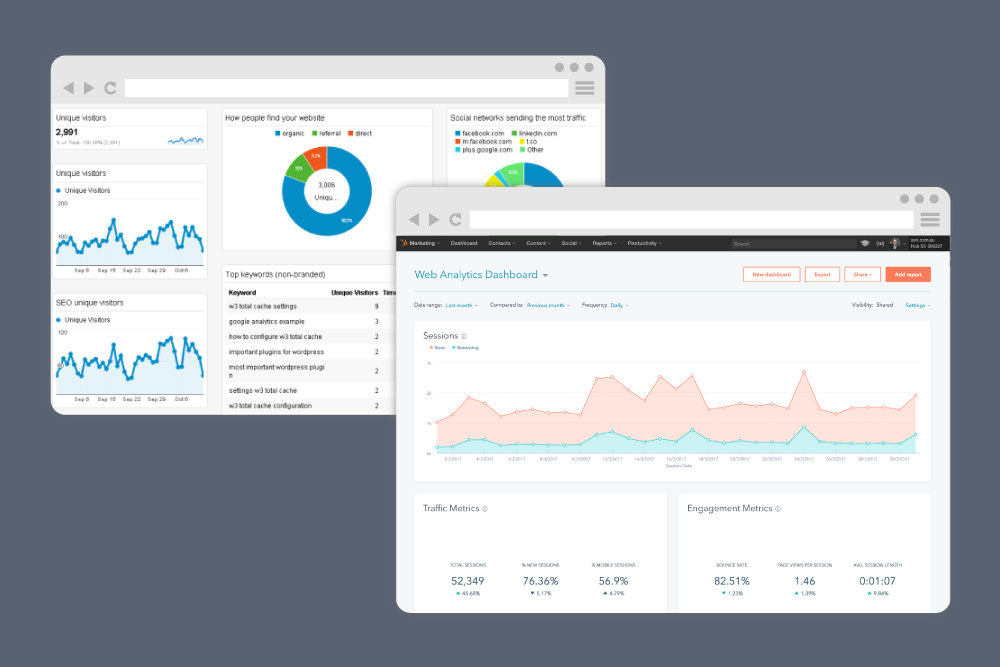Chapter 8
You could spend all day and night developing your buyer personas, researching your keywords, and building out your content marketing plan, but all your efforts will be for nothing if you aren’t analyzing and tracking the success of your strategy. Here are the most important metrics you should be tracking to fully understand the true success of your inbound marketing efforts.
Website Traffic
This is a simple metric but a very important one. How many people are coming to your website? Knowing the answer to this question will help you understand the success of your brand awareness strategy. This is also a metric you want to measure over time. Make note of where you started, where you’re headed, and the results you’d like to see that will make the most impact. Your website traffic is the first step towards building lead generation.

Website Traffic by Source
Understanding where your website traffic is actually coming from is a great metric to measure because it helps you focus your efforts. The major website traffic sources are:
Direct Traffic
Visitors that type your exact business web address in their address bar.
Organic Search
Visitors that get to your website from search engines.
Referral
Visitors that come to your website from another referring site.
Social
Visitors who got to your website from a social media link.
Paid Search
Visitors from a paid advertisement, such as Google or Bing ads.
If you see these numbers continuously grow over time, it typically means that your content is considered valuable by both visitors and search engines. 
Leads
Leads are those individuals that provide their information through contact forms or in exchange for a piece of content or valuable tool. Tracking your lead metrics, such as how many leads you get per month, what pages or offers are driving the most leads, as well as the actual persona data helps you better understand the value of your content as well as the stages of the buyer’s journey for your business.
Site-Wide Conversion Rate
Your site-wide conversion rate is the rate at which your website is converting unknown visitors into known leads. This metric helps you identify which pages are resulting in the highest number of conversions throughout your entire site. A typical site-wide conversion rate is around 1-3%.
Social Reach
Understanding the number of followers you have on social media pages like Facebook, Twitter, Instagram, and LinkedIn is the best way to measure your social reach. The higher this number is, the more people you are likely to reach with your content promotion on social sites.
Email Click Rates
Once a lead opens an email, it’s important to measure the performance of the content within the email. Email click rates provide you with engagement data. This metric helps you understand whether or not your email was engaging enough to drive action from your prospects and leads. If your email click rates are low, you may need to position your content differently to drive the engagement you’re looking for. It’s also important to note the relationship between open and click rates. For example, if you send an email with a high open rate but a low click rate, there could be a connection. Perhaps your subject line was misleading and the prospect or lead was expecting different content within the email copy. Whatever the reason, these are important metrics to consider as part of analyzing your data.
Customers
At the end of the day, we all want more customers from our marketing efforts. And while all the above metrics are incredibly important, tracking a metric that shows actual measurable ROI is by far the most valuable. Not only will tracking customer data show a direct return on your investment from your inbound marketing strategy, you can also gain valuable insight into the customer lifecycle, such as how many touch points were needed or how many days it took for a lead to close into a customer.
While these are not the only inbound marketing metrics you could and should track, these are some of the most important that can be a direct reflection on how well your inbound marketing is performing.